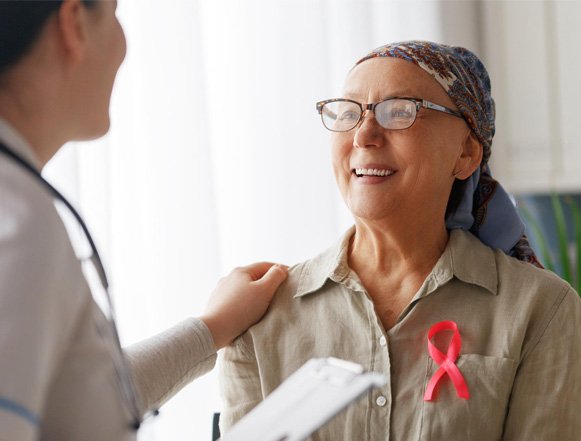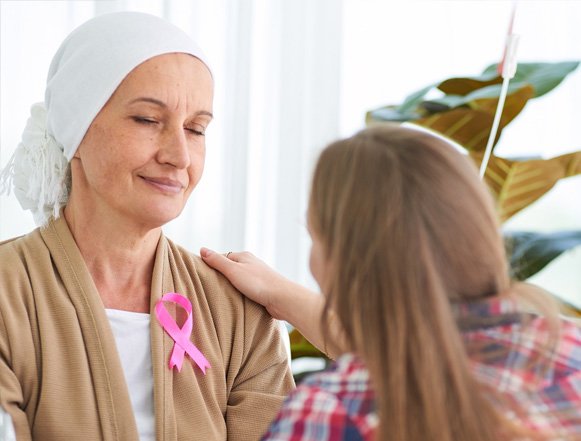Cancer is fatal if not detected early. That’s common knowledge. No doubt, healthcare providers keep insisting on early screening and detection of cancer. That’s because when cancer is detected early, preventive strategies can significantly reduce the risk and severity of this disease.
Understanding the significance of cancer prevention and screening is crucial for those with a family history. But it is also helpful for anyone looking to take control of their long-term health.
This guide will walk you through everything you need to know about cancer screening tests, risk factors for cancer, and how early detection of cancer can help prevent the severity of the disease.
Why Early Detection Matters?
As per the World Health Organisation (WHO), early diagnosis of cancer is important for cancer prevention and screening. Early diagnosis helps in identifying symptomatic patients early, improving the chances of treatment outcomes considerably. With delayed detection, the chances of survival decrease. In such cases, the cancer is more prone to spread aggressively without treatment. Even the treatment costs increase with diagnosis in the later stages due to the complexities of the problem.
Many forms of cancer, such as breast, cervical, colorectal, and prostate cancer, can be identified in their earliest stages through routine cancer screening tests. Cancer screening is a strategy where the patient is tested, examined, and, by means of other procedures, the detection or identification of cancer is enabled.
How to Prevent Cancer: A Lifestyle-Centric Approach

Not all cancers are preventable. However, a few can be prevented by making certain lifestyle choices.
Healthy Diet
Eat plenty of fruits, vegetables, and whole grains, and reduce consumption of processed foods and red meats, to prevent cancer. You also need to avoid sugary drinks and excess alcohol.
Exercise Regularly
You need to indulge in at least of150 minutes of moderate activity in a week or 75 days of rigorous activity. Being overweight increases the chances of cancer deaths, as per data from the US. Exercising helps regulate weight, reduces hormone levels linked to cancer.
Avoid Tobacco and Limit Alcohol
The relationship between alcohol consumption and cancer has strong scientific evidence. Alcohol is categorised as a Group 1 carcinogen. Smoking leads to a chain reaction, creating cancer-causing compounds. These compounds pass through the throat, lungs, tongue, and mouth, leading to increased risks of cancer.
Vaccinations
There are vaccinations available for certain cancers, like HPV for cervical cancer and Hepatitis B for liver cancer. These injections can help in cancer prevention and screening.
Cancer Screening Tests: What Should You Consider?
Screenings are medical tests that check for diseases before symptoms show up.
Cancer screening tests help find cancerous cells before there are any evident symptoms. Regular screening increases the likelihood of catching cancer early. This makes treatment more manageable.
Common Cancer Screening Tests
| Test | Cancer | Cancer |
| Mammography | Breast cancer | Women over 40 years are advised to go this screening test. |
| Human papillomavirus (HPV) tests and Pap tests | Cervical cancer |
|
| Stool tests, colonoscopy and sigmoidoscopy | Colorectal cancer | This cancer screening test reduces the chances of deaths from colorectal cancer. |
| Helical computed tomography | Lung cancer | Heavy smokers are advised to for this test between 50 and 80 years. |
| Alpha-fetoprotein blood test and liver ultrasound | Liver cancer | This screening test is advised for people with high risk of liver cancer. |
| CA-125 Test | Ovarian cancer | Helps detect cancer in high-risk patients and also recurrennce chances. |
| Prostrate-specific Antigen Test | Prostrate cancer | This test is usually recommended to patients at high risk of this disease. |
MCD (Multi-cancer detection tests) are tests for biomarkers or tumor markers and helpful in screening cancers of different types.
Make sure to talk to your doctor about which tests are right for you, based on your risk factors for cancer, such as age, family history, and lifestyle.
Understanding Risk Factors for Cancer

One of the ways of cancer prevention and screening is to keep a check on the risk factors.
Cancer doesn’t just happen overnight. It generally occurs due to a combination of reasons. Knowing what puts you at risk can help you take preventive steps early.
Major Risk Factors:

- Genetics of a family history of cancer
- Heavy tobacco use
- Chain smoking
- Unhealthy diet and obesity
- Sedentary lifestyle
- Radiation exposure
- Exposure to certain chemicals and pollutants
- Infections like Hepatitis B and C, H. pylori, etc.
Importance of Regular Check-Ups and Self-Awareness
Regular health check-ups is a recommened method of early detection of cancer. These help you stay informed about your health.
You need to be aware of the warning signs and immediately consult with a doctor. Certain signs that can indicate cancerous growths in the body are –
- Sudden weight loss
- Persistent low-grade fever
- Lumps or swelling
- Persistent fatigue
- Unexplained pain
- Changes in skin or moles
- Red/white patches in the mouth
- Bleeding from any body part without reason
Making Informed Choices Regarding Cancer Prevention and Screening: What You Can Do Today
- Always consult with a doctor and brief them about your personal and family medical history.
- After 40, make it a habit to get screened regularly. If you have risk factors, ensure regular health checkups.
- Adopt healthy lifestyle habits like clean eating, regular exercise, and avoiding tobacco.
Cancer Therapy India
If you have a loved one in Bangalore who is at a high risk, make sure that they take the cancer screening tests regularly at Cancer Therapy India. This is a hospital of repute, dedicated to cancer research and cutting-edge treatment with a multidisciplinary approach. With state-of-the-art diagnostic facilities and a team of experienced oncologists, the centre ensures accurate and timely detection of even the earliest signs of cancer.
The Power of Cancer Prevention and Screening
The word ‘cancer’ sounds ominous, but treatment exists for the early detection of cancer. With regular health checkups and screening tests, you can stay stress-free as these facilitate cancer prevention and screening. By understanding your risks, adopting healthier habits, and staying proactive with screening tests, you can significantly increase your chances of living a long and healthy life.

